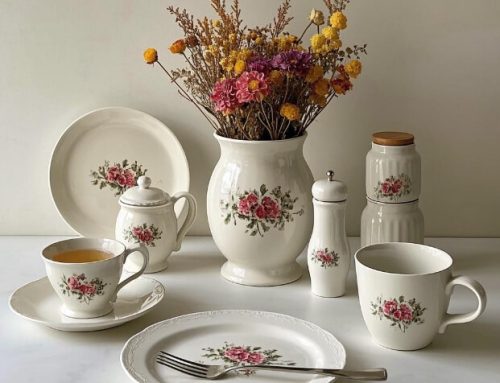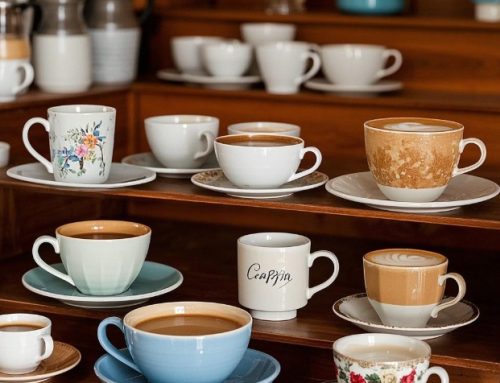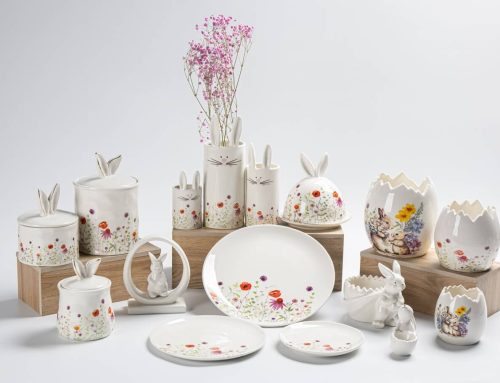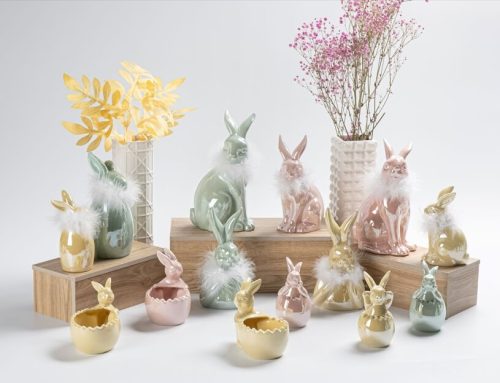Ceramic dinnerware has been trusted for thousands of years. From ancient pottery in 24,000 BC to today’s modern table settings, ceramics remain an essential part of dining culture. For restaurants, hotels, and distributors, choosing bulk ceramic dinnerware offers not only cost advantages but also long-term value in quality, safety, and sustainability.
1. Non-toxic and Food-Safe
High-quality ceramics are made from natural clay and contain no harmful chemicals like BPA or phthalates. Unlike some plastics or low-quality glazes, certified food-safe ceramics ensure safe dining for guests and long-term trust for businesses.
2. Free from Harmful Nonstick Chemicals
Many kitchens are moving away from cookware that uses PFOA or PTFE coatings. Ceramic dinnerware and cookware allow restaurants to serve meals without exposure to these chemicals — a safer option for both chefs and customers.
3. Heat Resistant for Professional Kitchens
Ceramics can withstand high temperatures without warping or releasing toxic gases. They are safe for ovens, microwaves, and dishwashers, making them reliable in busy hotel or restaurant kitchens.
4. Easy to Clean and Hygienic
Ceramic surfaces are non-porous, which means they don’t absorb liquids or odours. For high-traffic restaurants, this ensures faster cleaning, better hygiene, and reduced risk of cross-contamination.
5. Antibacterial Properties
Some ceramics incorporate antibacterial glazes, which help reduce bacteria growth on surfaces. For hotels and catering services, this feature adds an extra layer of safety in food presentation.
6. Hypoallergenic
Ceramics are naturally hypoallergenic and suitable for guests with sensitivities to plastics or metals. A thoughtful choice for restaurants and hotels that prioritise guest comfort.
7. Eco-Friendly and Sustainable
According to the European Environment Agency, over 300 million tonnes of plastic waste are generated annually worldwide. By choosing durable ceramic dinnerware, restaurants and hotels reduce their environmental footprint while supporting sustainability goals.
8. Neutral Taste Experience
Ceramic dinnerware does not alter the taste of food or drinks. This is especially important for fine dining restaurants and wine bars where flavour authenticity is crucial.
9. Aesthetic Appeal for Guest Experience
Presentation matters. From rustic pottery bowls to elegant Bone China plates, ceramic dinnerware elevates table settings and creates a memorable dining experience. In hospitality, beautiful tableware enhances guest satisfaction and brand image.
10. Versatility Across Operations
Ceramic dinnerware is safe for ovens, microwaves, freezers, and dishwashers. For hotels offering room service, buffets, and restaurants, this flexibility saves costs and simplifies logistics.
11. Durable and Long-Lasting
Although ceramics may look delicate, quality products are strong, shatter-resistant, and ideal for everyday use in hotels and restaurants. Choosing ceramic dinnerware wholesale ensures both durability and value.
Real-World Case Study: Homey Ceramic’s Hotel Project
At Homey Ceramic, we recently customised eco-friendly ceramic dinner sets for a boutique hotel group in Europe. The hotel required:
-
Lead-free glazes to meet EU food-contact safety standards.
-
Eco-friendly packaging made from recycled paper pulp.
-
Custom logo embossing on plates and mugs for brand consistency.
Feedback from the client:
“Our guests notice the difference — the ceramics not only look elegant but also reflect our sustainability values. Homey Ceramic made the process smooth, from design to delivery.”
This case highlights how the right ceramic supplier can help restaurants and hotels strengthen their brand while meeting health and environmental standards.
Drawbacks of Ceramic Products (and How to Manage Them)
While ceramics are durable, they can still chip if dropped, and cracked surfaces may harbour bacteria. Restaurants and hotels should choose certified, high-quality ceramics and train staff in proper handling to extend product life.
Conclusion
Ceramics remain a timeless and practical choice for the hospitality industry. By sourcing bulk ceramic dinnerware, restaurants and hotels can enjoy non-toxic, eco-friendly, durable, and visually appealing tableware that enhances guest satisfaction and supports sustainability.
???? Explore our full range at Homey Ceramic, where we provide custom solutions for hotels, restaurants, and distributors worldwide.
Ceramics come in different types like porcelain, pottery, earthenware, stoneware, and terracotta. Porcelain, for example, is made from white clay mixed with kaolin, silica, and quartz. This gives it a strong translucency.





